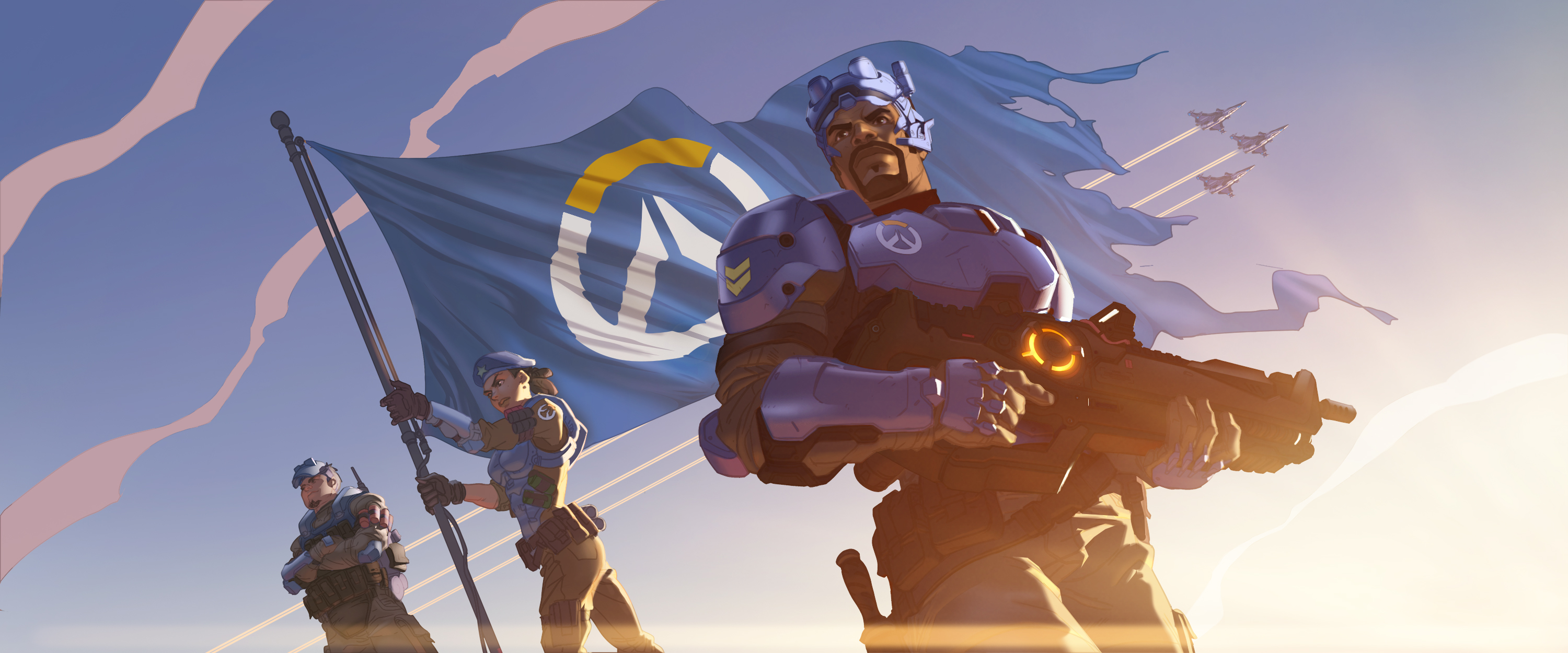
The Overwatch closed beta has officially shutdown for the holidays, but what's a holiday without stories to tell around the fire? I got a chance to speak with Overwatch creative director Chris Metzen and senior game designer Michael Chu, looking for some good stories about the Overwatch universe. These are the minds behind the backstory and lore of Blizzard's upcoming FPS, and we talked about how Overwatch's lore might evolve, what they're thinking when they design a hero, who the mysterious Doomfist might be, and lots more.
As it turns out, we might already know more about the Overwatch world than we thought. "Other than really broad things like the Omnic Crisis and big historical moments, in many ways, we're kind of making this up as we go," said Metzen, explaining that they haven't built out every little detail beforehand. "With this one, I think we're taking our time and not trying to get too far ahead of it." That approach has left a lot of room to build on the Overwatch universe—read the full interview below for details on how that's progressing, and where it might end up.
PC Gamer: Did you envision Overwatch as being multiplayer-only from the very beginning? And if that is the case, why make such a lush background and world right off the bat?
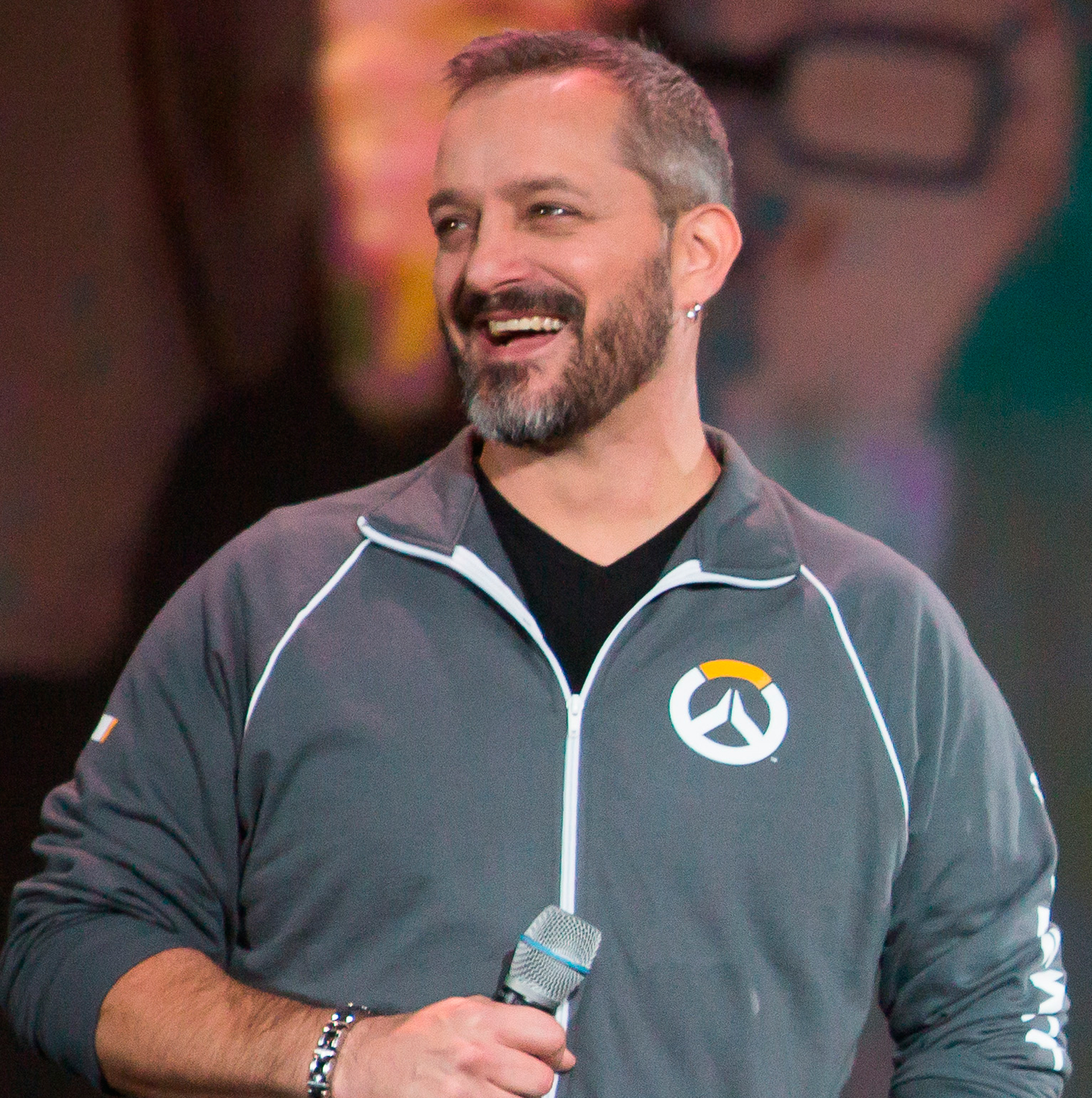
Chris Metzen, creative director: This is simplistic but kind of true... when we were initially discussing this game—what project would our team build next?—[game director] Jeff Kaplan in particular really wanted to try his hand at a shooter. He's a massive shooter fan and has, I think, kind of daydreamed for years about the kind he would want to make. And in particular, I've been chomping at the bit all these years to build something like a superhero universe. And in a way, the chocolate and peanut butter came together in the middle, you know? So I think the shape of the game as a shooter was always pretty clear, the essential shape of it at least.
And I wanted to build a big universe idea that could be expanded upon and deepened over time, like I feel our other universes are as well. And we knew that the first primary game expression would be a multiplayer shooter, but at the same time we wanted it populated by characters who had rich back stories and cool characters kits. To me, it's all the same thing over time. You're building a universe of ideas that people will stay compelled by, so even though the gameplay may be story-static to some degree, that doesn't really matter to folks like Mike and I. We're just out to build a big tapestry of awesome ideas that keep people thinking about these characters, and hopefully in love with these characters, even after you've turned your machine off.
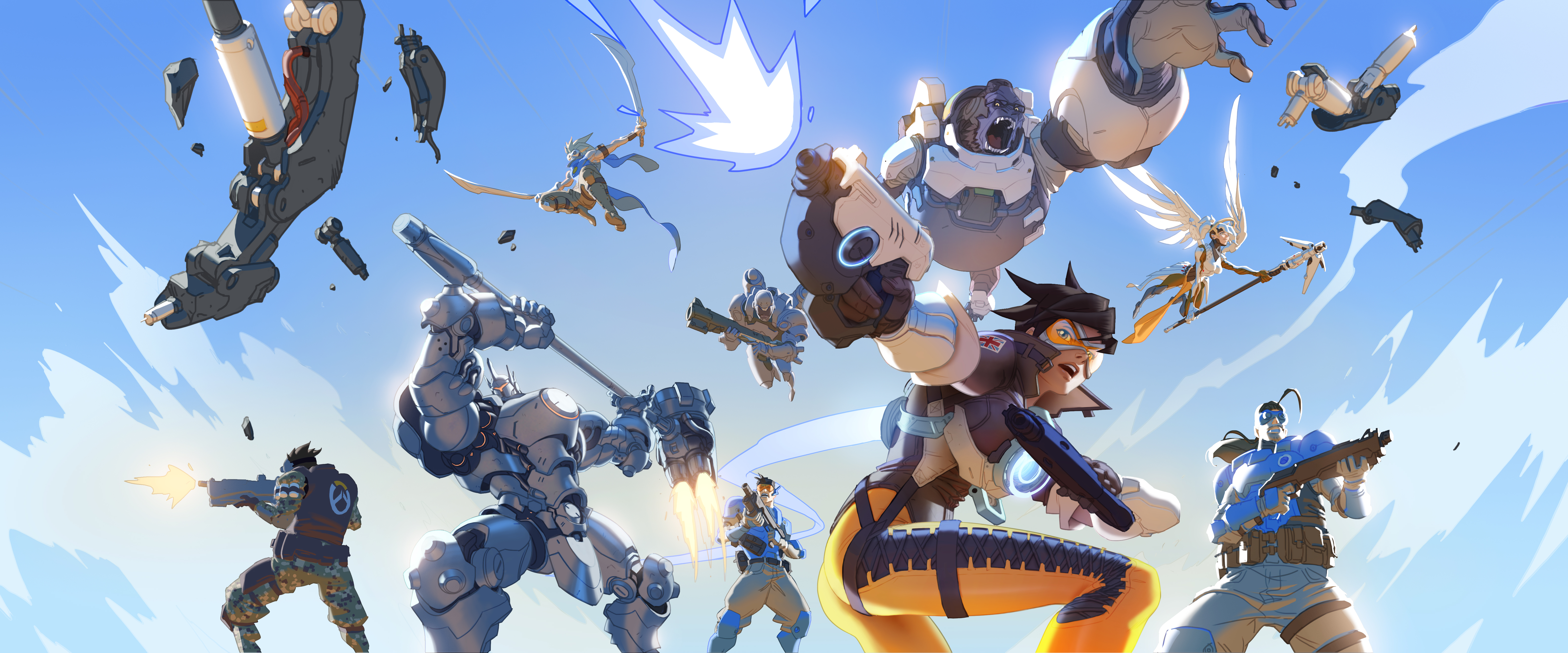
PCG: You say “like a superhero universe,” and that’s an interesting way to put it. Do you see these characters as superheroes?
Metzen: My primary response to that would be no. We don't use the word 'superhero' a lot. But words like 'agents'—they're all agents—doesn't quite do it either. So less than specific superheroes, I think there's a vibe you get from the big superhero universes that we've all grown up with. And I think we wanted to build a universe that has the infinite potential and possibility and heroism and interconnectedness that you see in the big comic book universes which we've all grown up with. I think we're trying to build a universe that feels like that, if not specifically superheroes themselves. Ultimately it's a shooter, so you have a lot of exotic weapons and things like that. So there's maybe more of a paramilitary bent to the Overwatch aesthetic than there is in a bigger comic universe where everyone is running around in capes and tights. But we want to pull as much of that heroism and vibe as we can.
Keep up to date with the most important stories and the best deals, as picked by the PC Gamer team.
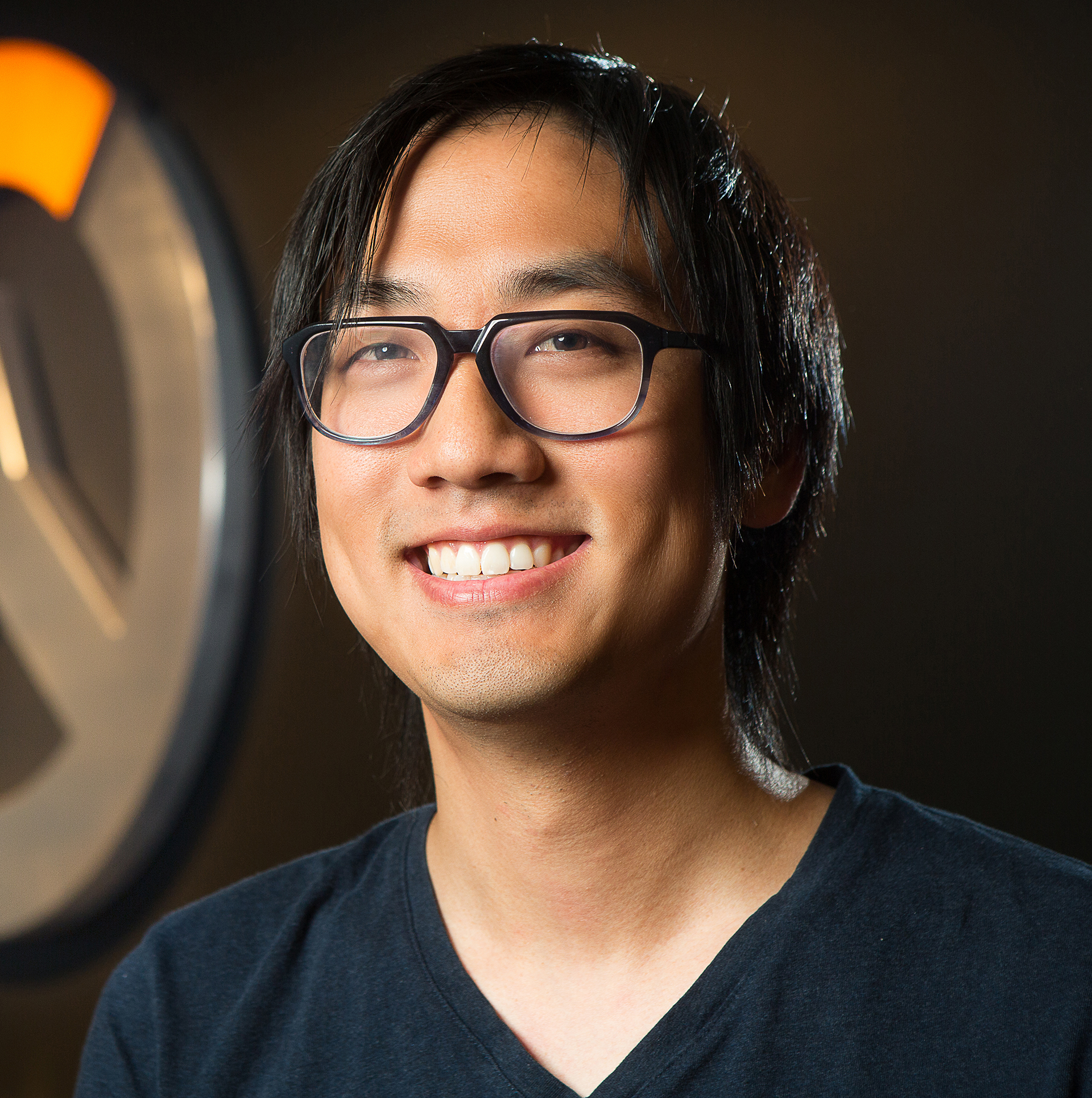
Michael Chu, senior game designer: Obviously there's a big heaping of science fiction in our story and, specifically, that kind of optimistic thing we go to plays really well with this idea of heroes. I would say when we're developing characters, we like to think about if each one of these characters could kind of stand on their own. I like to imagine, "What if each one of these characters has their own game?" And I think what Chris was talking about was that kind of shared universe comic stories. It's like we have all these individual characters, we have these great stories, challenges, powers and stuff, and they all have their own little ecology. But then when you mix them all together, they start to have relationships. They start to tackle larger worldview problems. And I think that's kind of where that inspiration leads.
Metzen: Like Mike said, as we develop each character, we're trying to develop their backstories in such a way that you could imagine any one of them having their own game or their own TV show or whatever. We're trying to build a rich tapestry of interconnected ideas, and ultimately, some of the best examples of that kind of world-building are the classic comic universes.
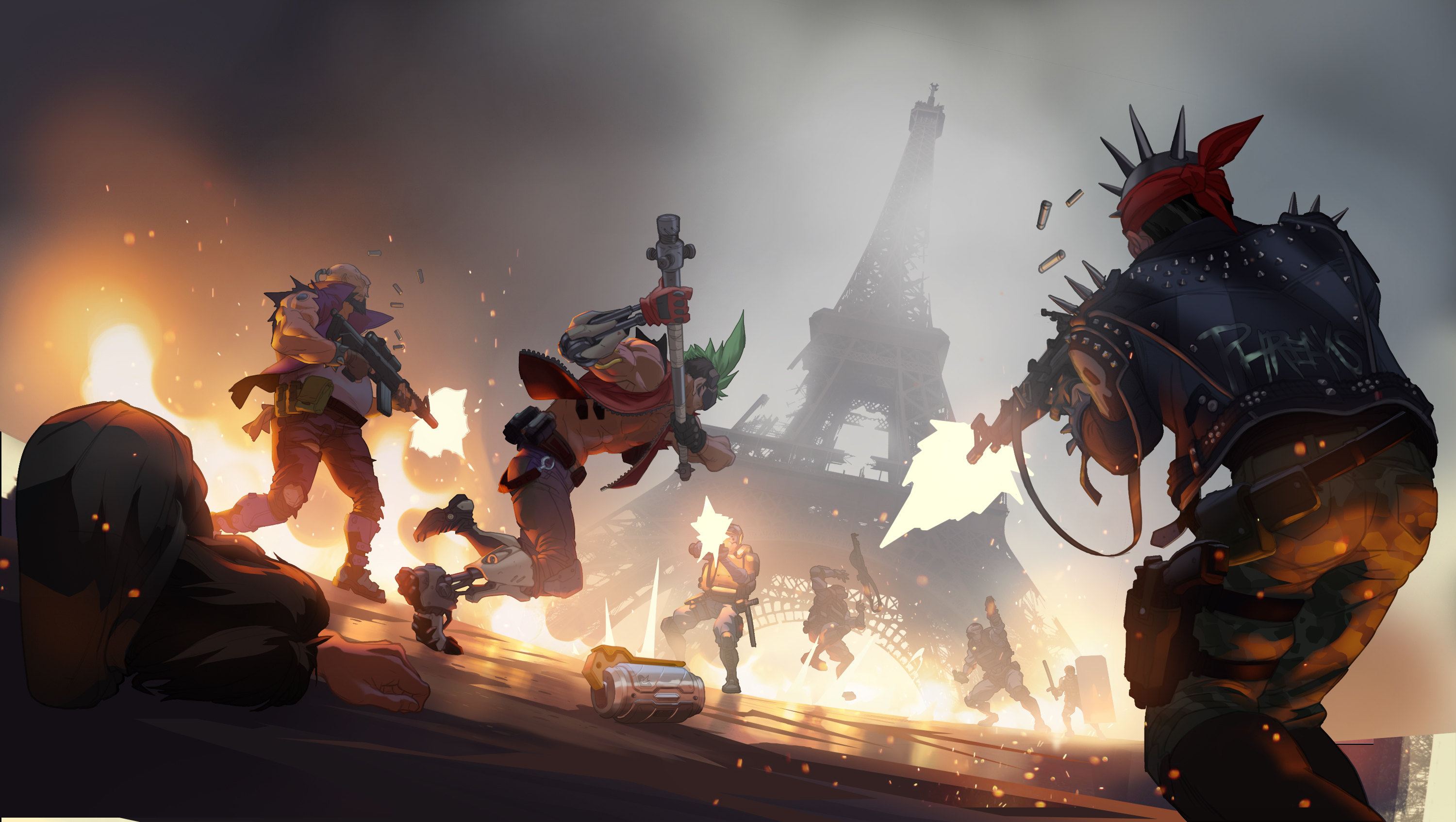
PCG: They are called 'heroes'—which I know is partly just a moniker, the same way League of Legends has ‘champions’—but there are very clearly characters who are villains. Widowmaker, Reaper, the Junkers—they're all undeniably bad guys. Why make villains playable in a game about heroes?
Metzen: I think, in a way, we got trapped with the nomenclature we were using early on. I think we always imagined that there would be a smattering of bad guys throughout, right? Just to have contrast. In a funny way, what I was sensitive to when we began Overwatch is I didn't want to create a franchise that felt binary, you know? Autobots and Decepticons. G.I. Joe and Cobra. Alliance and Horde. Because Warcraft had so been defined by that, and rightly so. I was a little paranoid of getting caught in that trap of good guys-bad guys. I wanted to focus on heroes, but not to the exclusion of having more texture to characters that took you somewhere different. Everybody's play styles are so different, our vibe styles are different, too. So there's players that like playing more dastardly characters.
We're trying to develop [each hero's] backstory in such a way that you could imagine any one of them having their own game.
Ultimately, as the characters kind of come into view—some of them start with a fictional idea, some of them start with a drawing, many of them start with a gameplay paradigm that we want to achieve. Widowmaker ultimately starts with, “Hey, let's have a ranged sniper.” And I think some of them just lend themselves towards one vibe or another and we didn't want to say, “Well, there's no bad guys at all,” because certainly there would be in a world like this. We want to let each character just take the shape it feels like they're taking. But we didn't necessarily want to come flat out and pose the franchise as one of those binary things.
Chu: And what Chris was saying about some of the characters, we've talked about it in interviews. But I think for some of these characters there is actually a little more going on. They're not exactly bad guys. I think there's a lot of room to talk about what is a guy like Soldier: 76? I mean, good guy, bad guy? Like there's a lot of room to kind of analyze what's going on. Someone like Symmetra, too. And we're really pushing for that, too, with a lot of our characters. I mean, obviously, we have some characters like the Junkers who are pretty much bad dudes who are out having fun, causing mayhem. But I think in the middle, a lot of characters exist and are interesting for that reason.
Metzen: Because their character has somewhere to go.


